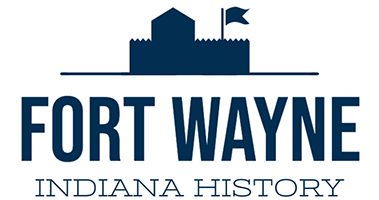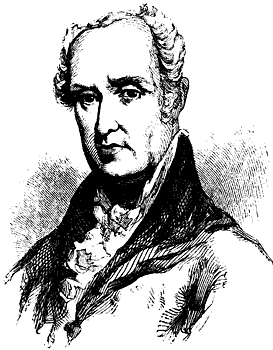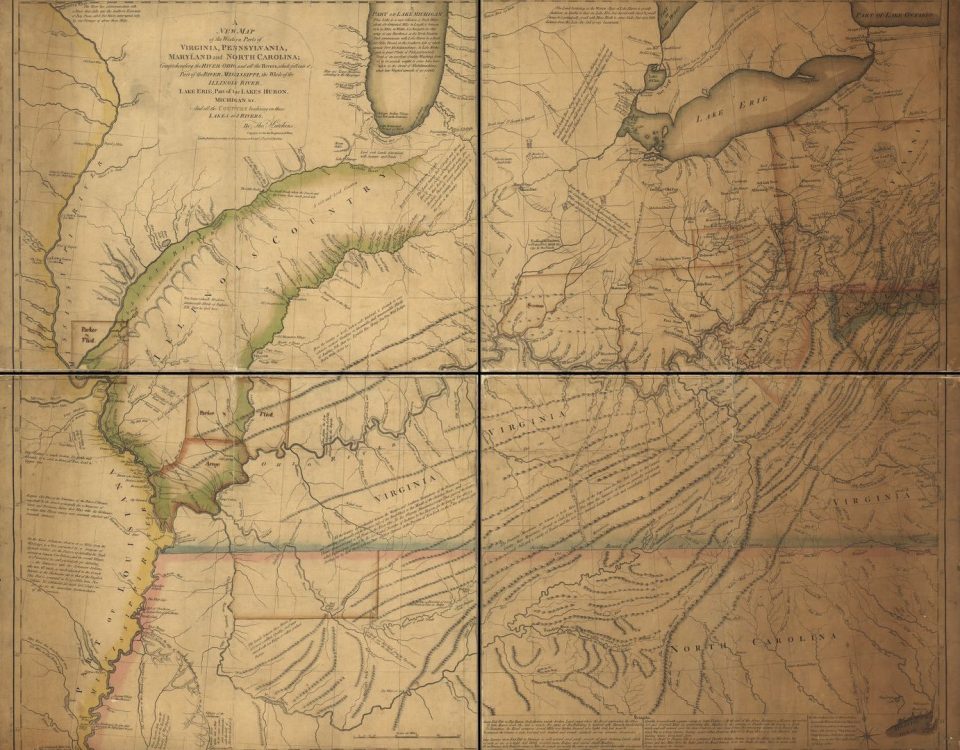Harmar’s Court Martial: The Deposition of Captain John Armstrong

A Brief History of the 44th Indiana Volunteer Infantry Civil War Regiment – from Fort Wayne, Indiana
December 15, 2021
A Narrative of Harmar’s Defeat: October 22nd, 1790
December 15, 2021The deposition of Captain John Armstrong, US Army Commanding 30 Regulars at Hardin’s Defeat October 19, 1790 in present day Eel River Township, Allen County, Indiana
Court of Inquiry on General Harmar
September 20, 1791
Fort Washington
“Captain Armstrong, being sworn and, deposed: that on report being made to General Harmar, by Major M’Mullen and others, that the tracks of women and children had been seen on the route leading towards the Kickapoo towns, a Northwest course, and supposing the enemy had left their families and baggage not far distant from camp, General Harmar, on the morning of October 18th detached Colonel Trotter, Colonel Hall, Major Ray and Major M’Mullen, with thirty federal troops, the mounted infantry, part of the cavalry, and a detachment of militia, amounting in the whole to 300 men. After they had proceeded about one mile, the cavalry gave chace [sic] to an Indian, who was mounted; him they overtook and killed; before they returned to the column, a second one appeared, on which the four field officers left their commands, and pursued, leaving the troops near half an hour without any directions whatever. The cavalry came across the second Indian, and after wounding one of their party, killed him also. When the infantry came up to this place, they immediately fell info confusion, which he gained permission to leave them some distance on the road, where he formed an ambuscade. After he had been some time at his station, a fellow on horseback came to him, who had lost the party in pursuit of the first Indian; he was much frightened, and said he had been pursued by fifty mounted Indians. That on his telling this story to Colonel Trotter, notwithstanding his observations to him, he changed his route, marched in various directions until night, when he returned to camp. That on their arrival in camp, General Harmar sent for him; and after answering him many questions ordered one subaltern and twenty militia to join his command. With those he crossed the river St. Joseph about ten at night, and with a guide proceeded to an Indian town, about two miles distant, where he continued with his party until the morning of the 19th. His party fired upon an Indian and retook from him two horses. About nine o’clock he joined the remainder of the detachment under Colonel Hardin. They marched on the route Colonel Trotter had pursued the day before, and after passing a morass about five miles distant, they came to where the enemy had encamped the day before. Here they made a short halt, and the commanding officer disposed of the parties at a distance from each other; after a halt of half an hour, they were ordered to move on, and Captain Faulkner’s company was left on the ground; the Colonel having neglected giving him orders to move on. After they had proceeded about three miles, they fell in with two Indians on foot, who threw off their packs, and the brush being thick, made their escape. He then asked Colonel Hardin where Captain Faulkner was? He said he was lost, and then sent Major Fontaine with part of the cavalry in search of him, and moved on with remainder of the troops. That some time after, he informed Colonel Hardin a gun had fired in their front, which might be considered as an alarm gun, and that he saw where a horse had come down the road, and returned again; but the Colonel still moved on, giving no orders nor making any arrangements for an attack. That some time after, he discovered the enemy’s fires at a distance, and informed the Colonel, who replied that they would not fight, and rode in front of the advance, until fired on from behind the fires; when he; the Colonel, retreated, and with him all the militia except nine, who continued with him, by the savages, he threw himself into a thicket, and remained there three hours in day-light; during that time he had an opportunity of seeing the enemy pass and re-pass, and conceived their numbers did not amount to one hundred men; that some were mounted, others armed with rifles, and the advance with tomahawks only; he was of opinion that had Colonel Trotter proceeded, on the 18th agreeably to his orders, having killed the enemy’s sentinels, they would have surprised their camp and with ease defeated them – or had Colonel Hardin arranged his troops, or made any military disposition, on the 19th, that they would have gained a victory. Their defeat he therefore ascribed to two causes; the un-officer like conduct of Colonel Hardin (who he believed was a brave man) and the cowardly behavior of the militia; many of them threw down their arms loaded, and he believed that none, except the party under his command, fired a gun. What he saw of the conduct of the militia on that day, and what he felt by being under the command of a man who wanted military talents, has caused him to determine, that he would not willingly fight with the one, or be commanded by the other. That he referred the court to the orderly book, which pointed out the line of march, encampment, and battle.”
Source:
Court of Inquiry on General Harmar. Military Affairs No. 4, 1st Session, 2nd Congress of the United States, pages 26-27.
Biography of John Armstrong, Accessed 12/14/2021. http://freepages.rootsweb.com/~scanderson/genealogy/john_armstrong.HTM
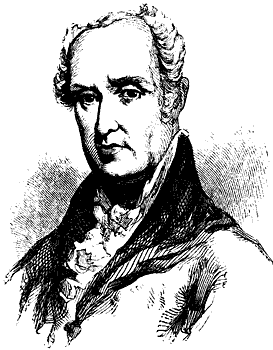
Captain John Armstrong (1755-1816) 
Fort Washington, Cincinnati 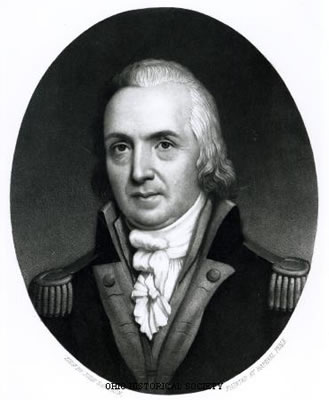
General Josiah Harmar (1753-1813)
